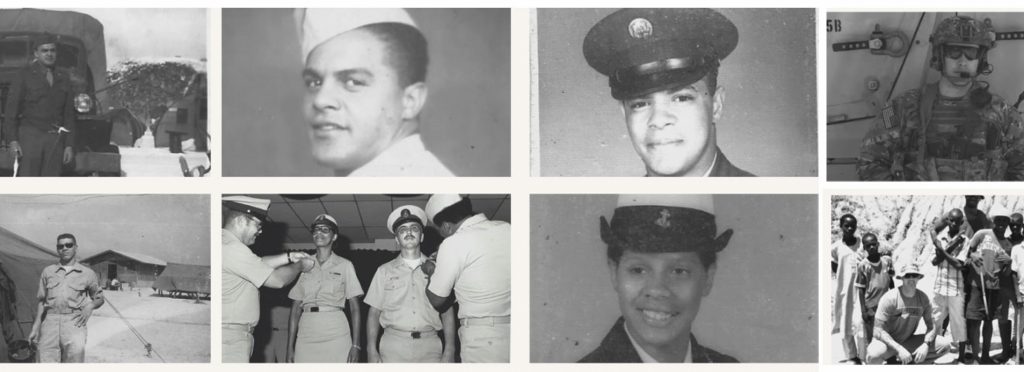In October 2001, just a month and a half after the September 11 attacks and the beginning of the Global War on Terrorism, Brenden Jackman walked into a recruitment office and enlisted in the U.S. Army.
Jackman had watched hours of continuing news coverage from his sofa, restless and groggy from a night of midweek carousing. He had a year of college courses under his belt, but he wanted something more. He wanted purpose and direction. As a native New Yorker, he felt a sense of responsibility to his community. As the eldest son of a single mother, he felt a sense of responsibility to his mom and two younger brothers. So, he says, he made a decision about who he wanted to be.
In 2002, less than a year later, he deployed to Afghanistan.
Jackman’s father served in the U.S. Navy and deployed to Vietnam in 1972. On his mom’s side of the family, Jackman is a third-generation service member, along with his brother Justin and his cousin Rashan. His grandfather, Fred, served in the Army during World War II when being African American in the armed forces meant fighting for democracy abroad while fighting for equality at home. Still, service was a point of pride for Jackman’s grandfather. It gave him a way to both satisfy his sense of duty and to provide for his growing family, and he passed that on to his own children, three of whom — Betty, Arthur, and Eddie — followed in Fred’s footsteps and served during the Vietnam War. His younger son Shawn is currently serving in the Air Force.
Betty, who has been a source of wisdom and inspiration for Jackman during his career, was one of the first African American women in U.S. Naval history to hold the rank of Master Chief Petty Officer.
Jackman’s uncle Arthur was Killed in Action during the Vietnam War. His grandfather had served and then lost a son in war, and so, when Jackman first came to his grandfather about his decision to enlist, he was met with mixed pride and concern. The worst thing that can happen in war had happened. Jackman’s grandfather was already a Gold Star Father. Loss was no longer abstract. It was real. Even so, Jackman says, his grandfather understood his sense of duty and obligation. He supported his decision.
Jackman, now a United States Army Special Operations Civil Affairs Officer, serving as Human Network Analysis Chief at USASOC, and his wife Marina are raising an active duty family of their own. That, of course, comes with its own set of challenges, but overcoming those challenges is the glue that holds the military community together, Jackman says. He wants to acknowledge the real difficulties (time away from family at the top of the list), find ways to overcome them, and then move on. All service requires sacrifice.
If there’s one thing that Jackman wants people to know, it’s that his family shares the same sense of duty and obligation that every American family shares. In that sense, he says, their experience is not unique. “All of us have a sense of belonging and pride. We all serve — it may not be military service — but we all serve in a way that makes sense for that time and place.”
What Jackman has learned about service from his family’s experience is this: “there’s no need to wait to show our gratitude to those who’ve sacrificed for their country. You may not agree with the war. You may not even agree that this is a war. But that shouldn’t reflect whether or how we thank those who’ve served and are still serving. Families should have this opportunity to recognize their sons and daughters, sisters and brothers, husbands and wives, and other loved ones at a national level, rather than recognizing them solely at a family or community level. We have the opportunity to give them that.”


